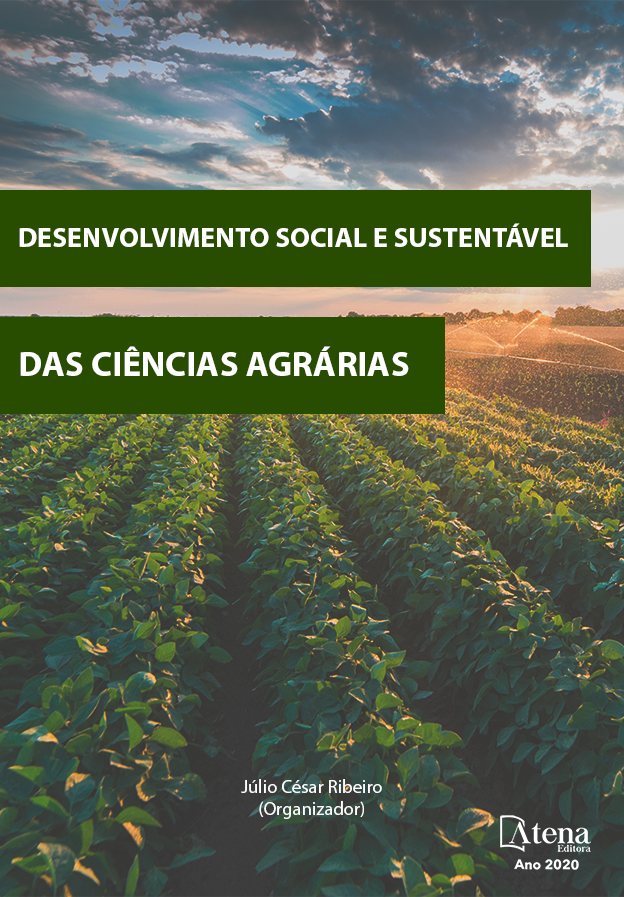
HORTA ORGÂNICA COMO INSTRUMENTO PARA EDUCAÇÃO AMBIENTAL E INCLUSÃO SOCIAL.
O trabalho foi desenvolvido a partir de atividades do projeto “Educação Ecoeficiente: Escola, Sociedade, Meio Ambiente e Sustentabilidade” O qual é desenvolvido pela Universidade Federal Rural da Amazônia (UFRA), por meio do Instituto de Ciências Agrárias (ICA) e do Núcleo Amazônico de Acessibilidade, Inclusão e Tecnologia (ACESSAR), com apoio financeiro da Empresa Navegações Unido Tapajós (Unitapajós). A ação foi realizada junto a usuários da Associação de Pais e Amigos dos Excepcionais (APAE) de Barcarena-PA, que atende atualmente 83 pessoas, dos quais 44 participaram das atividades de horticultura. O estudo teve como objetivo, realizar por meio de ações de educação ambiental, atividades lúdicas que envolvem produção de hortaliças, práticas sustentáveis, consumo de produtos orgânicos e auxilio no desenvolvimento intelectual e social. Diante disto, a aplicação das atividades obteve resultados satisfatórios sobre o ensino da educação ambiental e o cultivo de alimentos orgânicos, assim como quanto a inclusão social destas pessoas que necessitam de uma atenção maior e um incentivo para que desenvolvam também as suas habilidades sensoriais e cognitivas. Por fim, foi notório que este tipo de prática, como a horta orgânica, é de suma importância para o aprendizado de pessoas com deficiência, pois oferece uma interação entre o indivíduo e o meio ambiente e também com outras pessoas, o que estimula o convívio social e reduz o estresse e desenvolve a atividade cognitiva
HORTA ORGÂNICA COMO INSTRUMENTO PARA EDUCAÇÃO AMBIENTAL E INCLUSÃO SOCIAL.
-
DOI: 10.22533/at.ed.73320131023
-
Palavras-chave: horticultura, sustentabilidade, pessoas com deficiência
-
Keywords: horticulture, sustainability, disabled people
-
Abstract:
This work was developed from the activities of the project "Eco-Efficient Education: School, Society, Environment and Sustainability" Which is developed by the Federal Rural University of the Amazon (UFRA), through the Institute of Agricultural Sciences (ICA) and the Amazon Center for Accessibility, Inclusion and Technology (ACCESS) with financial support from Navegações Unido Tapajós company (Unitapajós).The action was filed with users of the Association of Parents and Friends of The Exceptional (APAE) of Barcarena-PA, which currently serves 83 people, of whom 44 participated in horticulture activities. The study aimed to carry out, through environmental education actions, recreational activities involving horticultura production, sustainable practices, consumption of organic products and assistance in intellectual and social development. In view of this, the of the activities obtained satisfactory results on the teaching of environmental education and the cultivation of organic foods, as well as regarding the social inclusion of these people who need greater attention and an incentive to develop their sensory and cognitive skills as well. Finally, it was notorious that this type of practice, such as the organic garden, is of paramount importance for the learning of people with disabilities, because it offers an interaction between the individual and the environment and also with other people, which stimulates social interaction and reduces stress and develops cognitive activity.
-
Número de páginas: 13
- Vânia Silva de Melo
- Dandara Lima de Souza
- Jonathan Dias Marques
- Simon da Cunha Tenório
- Mário Lopes da Silva Júnior
- eduardo luiz raiol padilha


